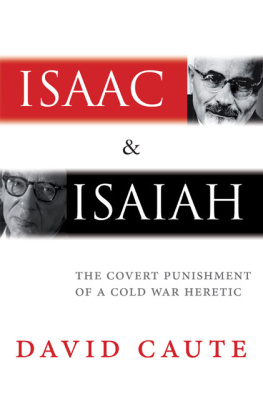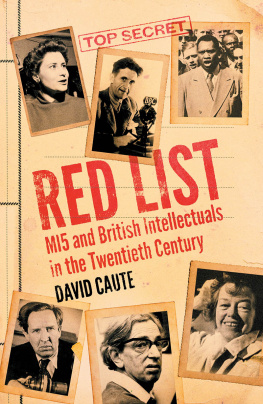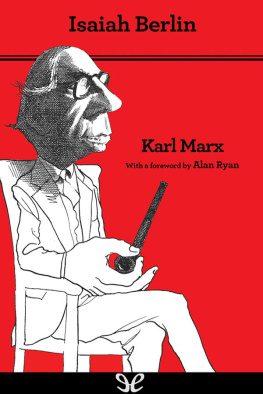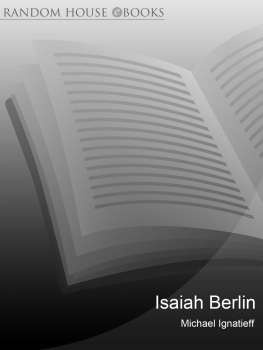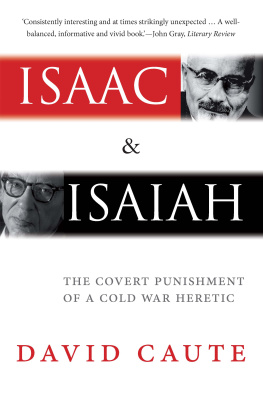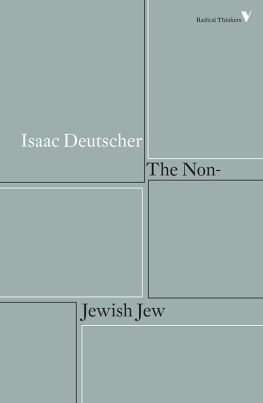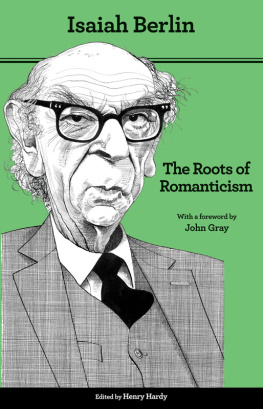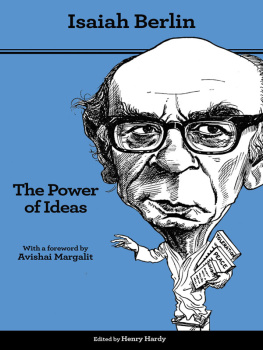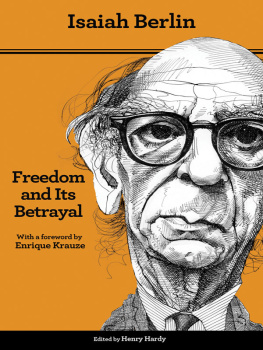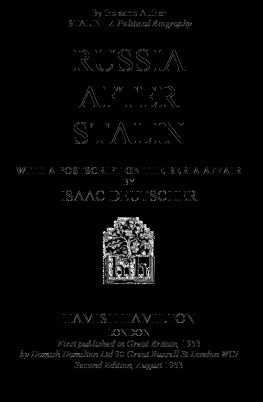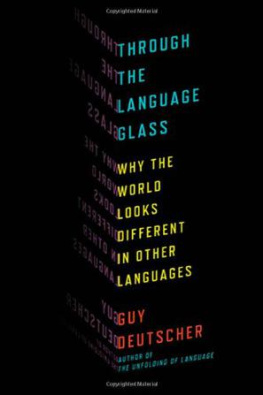
By the same author
Politics and the Novel during the Cold War (2010)
Marechera and the Colonel. A Zimbabwean Writer and the Claims of the State (2009)
The Dancer Defects: the Struggle for Cultural Supremacy during the Cold War (2003)
Joseph Losey: a Revenge on Life (1994)
The Fellow-Travellers. Intellectual Friends of Communism (1988, revised and updated)
Sixty-Eight: the Year of the Barricades (1988)
Under the Skin: the Death of White Rhodesia (1983)
The Great Fear. The Anti-Communist Purge under Truman and Eisenhower (1978)
Collisions. Essays and Reviews (1974)
Cuba, Yes? (1974)
The Fellow-Travellers. A Postscript to the Enlightenment (1973)
The Illusion. Politics, Theatre & the Novel (1971)
Frantz Fanon (1970)
The Left in Europe since 1789 (1966)
Essential Writings of Karl Marx (1966)
Communism and the French Intellectuals (1964)

Copyright 2013 David Caute
All rights reserved. This book may not be reproduced in whole or in part, in any form (beyond that copying permitted by Sections 107 and 108 of the U.S. Copyright Law and except by reviewers for the public press) without written permission from the publishers.
For information about this and other Yale University Press publications, please contact:
U.S. Office:
Europe Office:
Set in Adobe Garamond Pro by IDSUK (DataConnection) Ltd
Printed in Great Britain by TJ International Ltd, Padstow, Cornwall
Library of Congress Control Number 2013931820
ISBN 978-0-300-19209-4
A catalogue record for this book is available from the British Library.
10 9 8 7 6 5 4 3 2 1
For Murray Forsyth
Contents
Acknowledgments
I AM INDEBTED to Dr Henry Hardy, Fellow of Wolfson College, for his contributions to this book on behalf of the Isaiah Berlin Literary Trust. He not only supplied the author with copies of letters by Berlin not found, or readily found, in the Bodleian Library's Isaiah Berlin Collection, but he also facilitated access to closed sections of the archive. Dr Hardy also made many helpful suggestions when kindly vetting my quotations from Berlin's writings under copyright. Any remaining errors of transcription or understanding are entirely my own.
I would like to thank Michael J. Hughes, project archivist, The Isaiah Berlin Collection, Bodleian Library, Colin Harris, of the Bodleian Library, as well as the helpful staff of the Bodleian's Special Collections Reading Room. My thanks to the following: the staff of the London Library; the staff of the Royal Institute for International Affairs Library, Chatham House, London; the staff of the Slavonic and East European Studies Library, London.
Regarding the Papers of Isaac and Tamara Deutscher, I am indebted for access and permissions to the director and staff of the International Institute for Social History (IISG), Amsterdam. Mr Bouwe Hijma was invariably helpful. For access to the All Souls College (Codrington) Library, I would like to thank Professor Sir John Vickers FBA, Warden of All Souls, and Dr Norma Aubertin-Potter, Librarian, who has been unfailingly helpful. Perhaps I should add that the main fruits of my research in the Codrington will have to find a place in a future book.
I am indebted to the following for generous help and advice: Lord Briggs (Professor Asa Briggs); Robin Briggs, Emeritus Fellow of All Souls College; Professor Michael Cox, London School of Economics; Professor Jonathan Haslam, Corpus Christi, Cambridge; Dr Cecile Hatier, University of Wolverhampton; Professor Nicola Lacey, All Souls College; Professor Michael Lipton, University of Sussex; Joanna Ryan, for kind permission to quote from two letters by her mother, the late Jenifer Hart; Eva Sadowski, for kindly helping with Polish expressions in correspondence between Isaac and Tamara Deutscher; Professor Sir Keith Thomas, Distinguished Fellow of All Souls College; Professor Bernard Wasserstein, University of Chicago.
I am grateful to Robert Baldock and Candida Brazil at Yale University Press, for their valuable support and good counsel.
As always, my first debt is to the support of my wife Martha Caute, an expert editor of first drafts whose criticisms and suggestions I could not do without.
It goes without saying that had the late Isaiah Berlin and the late Isaac Deutscher not written their enduringly fertile and marvellously erudite works, the world would have been a poorer place and this book would not have been written.
For permissions to quote from works under copyright, I am grateful to the following:
The Isaiah Berlin Literary Trust (Isaiah Berlin); The International Institute for Social History (IISG), Amsterdam (Isaac and Tamara Deutscher); Peter Halban Publishers, for kind permission to quote from Conversations with Isaiah Berlin by Ramin Jahanbegloo, first published by Halban Publishers 1992, reissued 1997, copyright Editions du Flin, Paris 1991; the Estate of Jenifer Hart for permission to quote from Isaiah Berlin's Foreword to Ask Me No More. Autobiography, by Jenifer Hart, copyright by the Isaiah Berlin Literary Trust 1998. Copyright The Estate of Jenifer Hart 1998; Random House for kind permission to quote from Isaiah Berlin: A Life, by Michael Ignatieff, published by Chatto & Windus. Reprinted by permission of The Random House Group Limited, Henry Holt (USA) and Penguin Canada.
Preface
B OTH I SAIAH B ERLIN (19091997) and Isaac Deutscher (19071967) are regarded as major thinkers and politically influential intellectuals of the twentieth century. Both achieved the height of their influence during the Cold War. Their mutual antipathy was intense and in Berlin's case without parallel.
On one occasion Berlin explained to the present writer precisely why Deutscher should not be allowed to hold an academic post anywhere. This conversation took place in the common room of All Souls College, Oxford, early in 1963. He declined to explain, however, whether he had in mind a specific post at a particular university. That was confidential. Although Berlin's passionate discourse on that occasion made a sharp impression, I never pursued its consequences (if any) very soon afterwards I became more preoccupied by his stance during the All Souls reform crisis.
Memories from that distant time sprang their lock a few years ago when ongoing research into the cultural Cold War brought me to the Isaiah Berlin archive in the Bodleian Library. There I came across partial evidence of what Berlin had done, or might have done, to Deutscher at the time of my conversation with him. Quite apart from the exceptionally gifted, and indeed charismatic, personalities involved, the story of Berlin's bitter feud with Deutscher held an added attraction: it offered a path into the densely populated controversies between historians and political theorists during the years when the American and Soviet systems confronted one other in naked rivalry. Surely that was what the personal antagonism between the devoted liberal and the dedicated Marxist was about?
Yes, to a large extent, but that is far from the whole story. Isaiah Berlin had become one of the presiding voices of Anglo-American liberalism. On virtually every issue he took the anti-Soviet position. Deutscher by contrast remained faithful to his Leninist heritage and resolutely defended Soviet conduct. Although a critic of Stalin, he nevertheless regarded his work as essential to Soviet modernisation. Deutscher relentlessly disparaged Western positions while prophesying a true socialist democracy in post-Stalin Russia.
Next page
